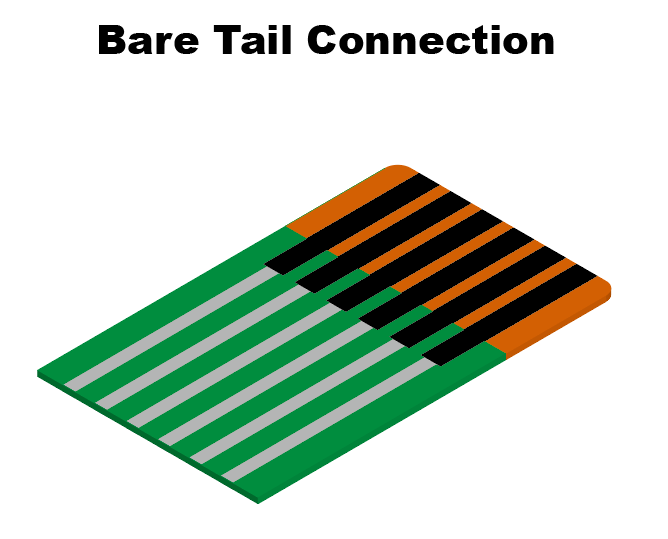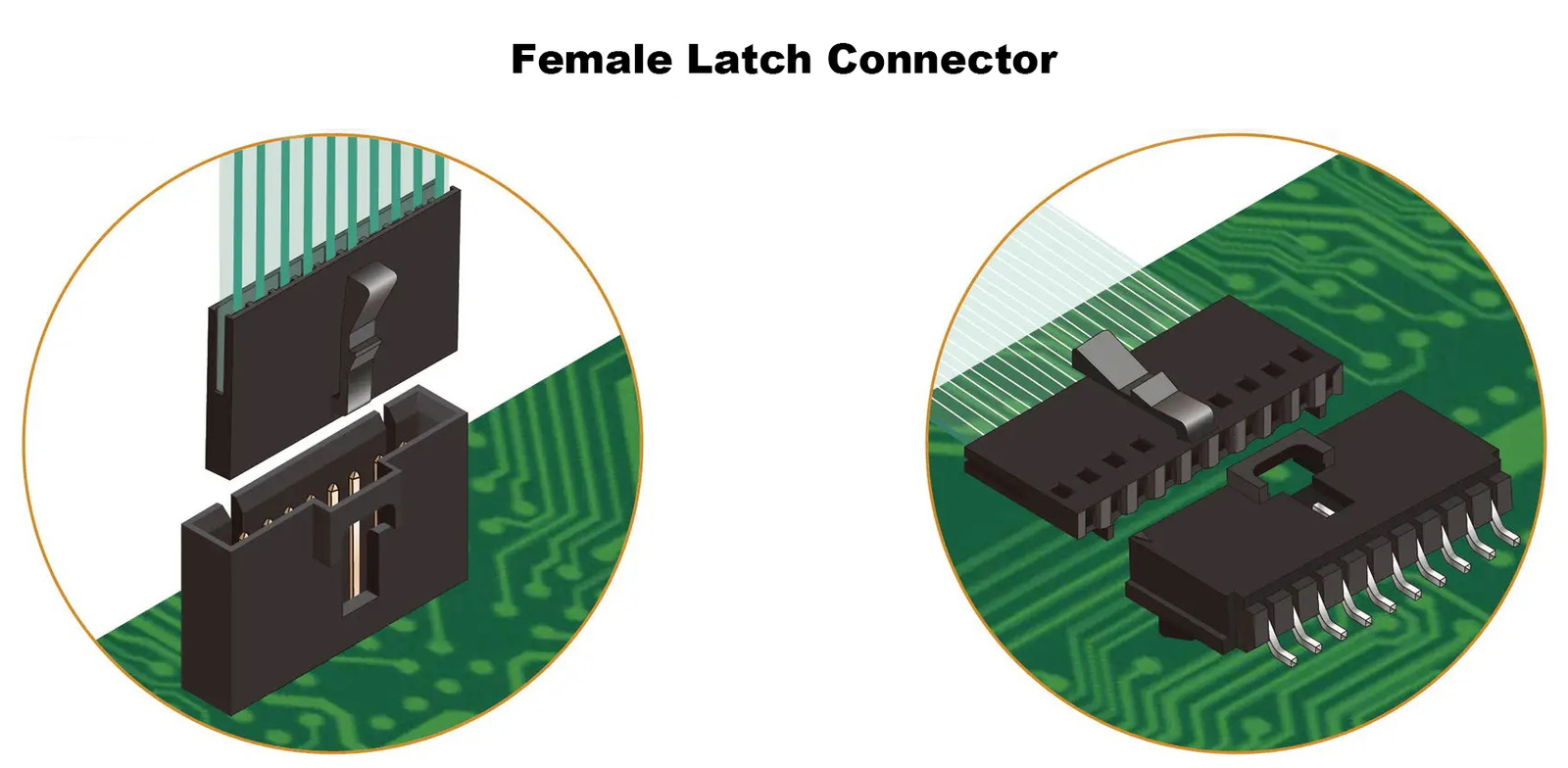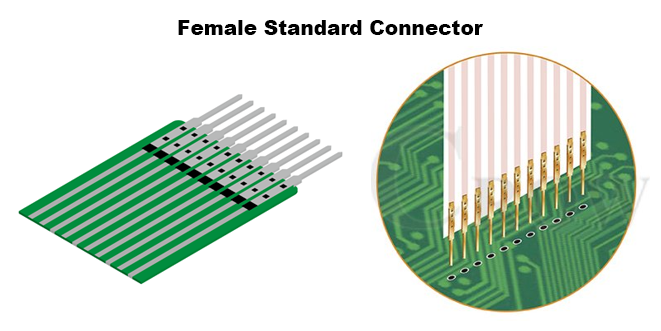フォローしてください:
What are the options for Membrane Switch Connectors?
As the electronics industry continues to grow, the use of membrane switches becomes more widespread, and the connection methods become increasingly diverse. The type and choice of membrane switch connectors significantly influence device performance and stability. Understanding different types of membrane switch connectors, their characteristics, and appropriate application scenarios help us choose the right products and solutions more efficiently.
Membrane switch connectors are broadly classified into the following three types:
- Bare Tail Connection
- Female Connectors
- Male Connectors
Bare Tail Connection: The bare tail connection, a common membrane switch connector, typically links to the client’s mainboard ZIF (Zero Insertion Force) and LIF (Low Insertion Force) connectors. These belong to the FFC/FPC connectors, often having a pitch of 1.0mm and 0.5mm. Bare tail connectors can be designed with latches to prevent disconnection risks during vibrations or impacts, necessitating the installation of a suitable ZIF latch connector on the client’s mainboard.


Female Connectors: Female connectors are a widely used membrane switch connector type. They are installed by crimping terminals onto the end of the membrane switch circuit and connect to the client’s mainboard. Female connectors usually have pitches of 1.27mm and 2.54mm and are divided into standard female connectors, lock connectors, and integrated connectors. The lock connectors are more stable, preventing potential disconnection in high-pressure or vibration environments, while integrated connectors can integrate multiple connectors together, saving space and cost.
- Female Standard Connector
- Female Latch Connector
- Simple Connector



Male Connectors: Male connectors, like female connectors, also have pitches of 1.27mm and 2.54mm. They are installed by crimping metal pins onto the end of the membrane switch circuit and then welding or inserting onto the client’s mainboard.

The choice of membrane switch connectors should be determined by the specific application scenarios and needs. For devices requiring space-saving and infrequent plugging and unplugging, the bare tail connection method can be chosen. For devices requiring a stable connection and possibly frequent plugging and unplugging, female connectors or male connectors can be selected, especially lock connectors or integrated connectors.
When designing membrane switch connectors, connection stability and reliability must be considered alongside the device’s overall dimensions and cost. Latched bare tail connections, providing space-saving solutions, and lock connectors offer stable and efficient connection options that are not prone to disconnection.
In conclusion, membrane switch connectors are an essential part, determining the performance and lifespan of a membrane switch. Therefore, choosing the appropriate membrane switch connector is crucial. Both bare tail connections and crimp connections have their applicable scenarios and advantages. Only through a deep understanding and comparison of various connection methods can the most suitable membrane switch connector be chosen.
We hope this article helps you better understand the types and characteristics of membrane switch connectors, thereby choosing the most suitable products and solutions for you. If you have any questions about membrane switch connectors, please feel free to contact us at any time. We are always ready to serve you.
Some of the connector images in this article use images from CrownLink Connectors, Inc. If you are interested in connectors, please visit the CrownLink Connector Company website: http://www.crownlinktw.com/
